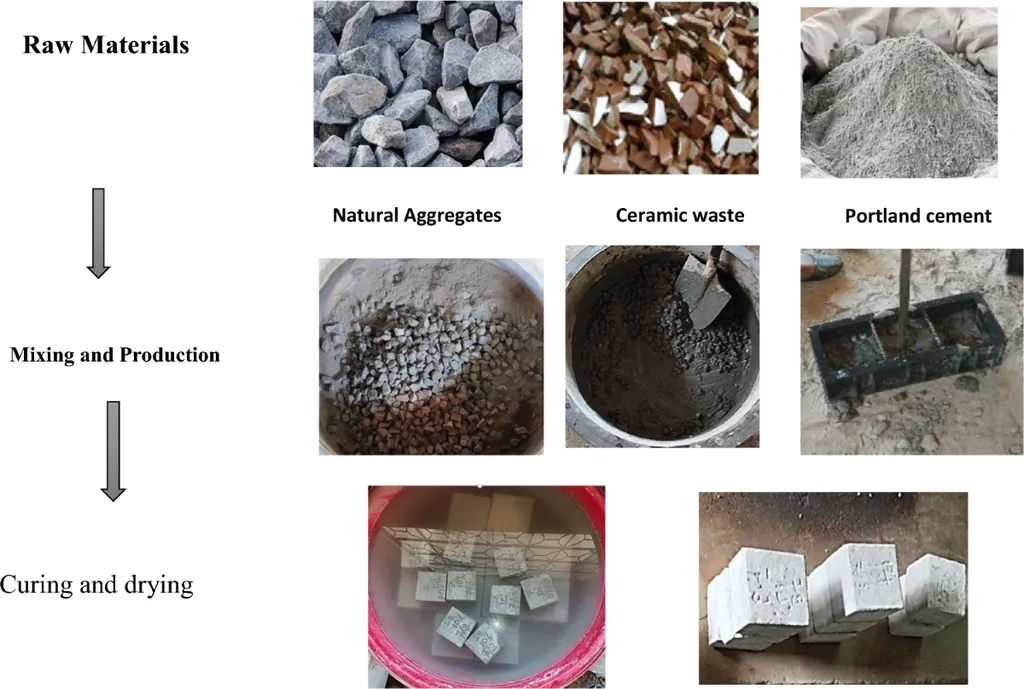In a groundbreaking study that could reshape the construction industry’s approach to sustainability, researchers have demonstrated the potential of ceramic waste as a viable and eco-friendly material in self-compacting concrete (SCC). The research, led by Abderrezak Bouziane from the Faculty of Technology at the University of Bejaia, Algeria, and published in the *Journal of Sustainable Construction Materials and Technologies* (translated from French), offers a promising solution to reduce the environmental footprint of concrete production.
The study, which focused on recycling ceramic waste, explored the use of different substitution ratios and particle sizes to enhance the properties of SCC. “The addition of ceramic waste affects the properties of the obtained material,” Bouziane explained. “The compressive strengths of all mixes were larger than that of the control sample, which is a significant finding for the industry.”
One of the most innovative aspects of this research is the use of artificial neural networks (ANN) to predict the physico-mechanical properties of SCC based on the substitution percentages of ceramic waste. This predictive modeling approach not only optimizes the formulation process but also ensures that the material’s performance remains satisfactory. “The strong correlation between the experimental and predicted values proved the efficacy of the ANN for optimizing multi-response properties,” Bouziane noted.
The implications for the construction industry are profound. By leveraging ceramic waste, construction companies can reduce their reliance on traditional raw materials, thereby lowering costs and minimizing environmental impact. The use of ANN modeling further streamlines the development process, allowing for more efficient and precise material formulations.
“This research highlights the potential of ceramic waste to produce durable and efficient SCC while leveraging advanced modeling tools to optimize formulations,” Bouziane said. “It opens promising prospects for sustainable waste management in the construction industry.”
The study’s findings are particularly relevant for the energy sector, where sustainable construction practices are increasingly becoming a priority. As the industry strives to meet stringent environmental regulations and reduce carbon emissions, the adoption of recycled materials like ceramic waste in SCC could play a crucial role.
The research not only provides a practical solution for waste management but also sets a precedent for future developments in sustainable construction. By integrating advanced technologies like ANN modeling, the construction industry can achieve greater efficiency and sustainability, paving the way for a greener future.
As the construction industry continues to evolve, the insights gained from this study could shape the way materials are sourced, processed, and utilized. The use of ceramic waste in SCC is just the beginning, and the potential for further innovation in this field is immense. With continued research and development, the construction industry can look forward to a future where sustainability and efficiency go hand in hand.

